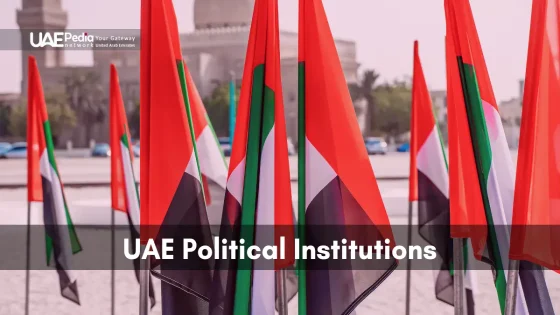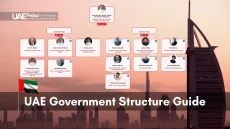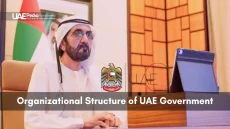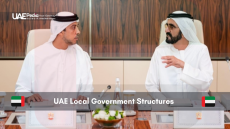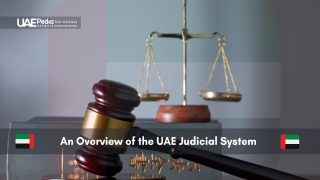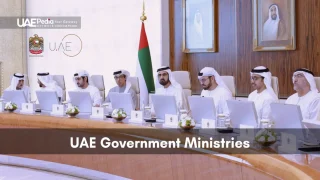The United Arab Emirates has a special way of governing. It’s a young nation, just over 50 years old. Yet, it has a political system that mixes old traditions with new ideas.
The UAE is made up of seven emirates. But, it has very little income inequality. This is rare for a country in the Gulf.
The UAE is a group of seven emirates on the Arabian Peninsula. It has become a big player in wealth management and innovation. At a recent forum in Dubai, experts talked about the UAE’s big role in finance.
The UAE has made laws that help families manage their wealth. This has made Dubai a great place for family offices. It’s easy for very rich families to start their offices here.
Dubai is becoming more popular for family offices. It has good tax rules, strong laws, and a great life. The UAE also focuses on new ideas and technology. This attracts young people with wealth.
The Constitutional Foundation of UAE’s Political System
The United Arab Emirates (UAE) started as a constitutional federation in December 1971. This special setup is key to the nation’s rule. It shapes its politics and guides its growth. The UAE Constitution, with 152 articles, sets the stage for the country’s federal system. It also protects citizens’ rights in many areas.
Federal Structure and Seven Emirates
The UAE’s politics is based on a federal setup with seven emirates. These are Abu Dhabi, Dubai, Sharjah, Ras Al Khaimah, Ajman, Umm Al Quwain, and Fujairah. Each emirate has its own power but works together for the country’s goals. This mix of local and federal control is what makes the UAE’s system special.
Constitutional Rights and Provisions
The UAE Constitution gives many rights and freedoms to its people. It talks about social and economic basics, public freedoms, and who does what at the federal level. It also covers money matters, the military, and how to move forward, making sure the country is well-governed.
Supreme Council and Presidential Authority
The Federal Supreme Council is at the top of the UAE’s politics. It’s made up of the rulers of the seven emirates. This group has the highest power in the country. They choose the President and Vice President, make big policy decisions, and shape the UAE’s future.
The President’s role is very important. It comes from the UAE’s founding documents. The President leads the UAE’s actions at home and abroad.
- The Federal Supreme Council comprises the rulers of all seven emirates
- The President of the UAE is traditionally the ruler of Abu Dhabi
- The Prime Minister is customarily the ruler of Dubai
- The UAE Cabinet, chaired by the Prime Minister, consists of 22 members
UAE Political Institutions and Executive Bodies
The UAE Cabinet is at the heart of the UAE’s government. It has 37 ministers, with 9 women. This group helps make big decisions for the country. The first UAE Cabinet was set up on December 9, 1971.
The Prime Minister, H. H. Sheikh Mohammed bin Rashid Al Maktoum, leads the Cabinet. He is also the Vice-President and Ruler of Dubai. The President picks the Prime Minister and other top officials, as the UAE Constitution says.
The Cabinet does a lot of work. It makes the country’s policies and laws. They also plan the budget and make sure laws are followed.
The Federal National Council works with the Cabinet. It has 40 members, half elected and half appointed. This group helps talk about laws and important issues.
| Aspect | Details |
|---|---|
| Cabinet Composition | 37 ministers (9 women) |
| Cabinet Formation Date | December 9, 1971 |
| Constitutional Articles | 55-67 (Cabinet establishment and jurisdiction) |
| Prime Minister | H. H. Sheikh Mohammed bin Rashid Al Maktoum |
| Federal National Council | 40 members (20 elected, 20 appointed) |
The UAE values fairness and justice. It’s ranked high in the MENA region for rule of law. The country’s legal system is strong, leading in many areas.
Learn about: Implementing Government Policies in the UAE
The UAE’s way of governing is a shining example in the region. Since 1971, it has mixed old leadership with new ways of ruling. This mix has brought stability and fast growth to the UAE.
The UAE holds regular elections, with the next one in 2023. Leaders like Anwar Mohammed Gargash help shape the UAE’s future. Gargash shows the UAE’s dedication to involving people in politics.
The UAE is looking to involve more people in its politics. It has made legal changes in 2020 to tackle social issues. Despite challenges, the UAE is growing strong, thanks to its focus on soft power and working with others.
